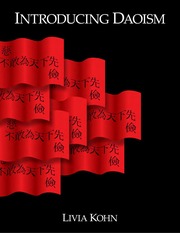Introducing Daoism
User Rating: Be the first one!
Author: Liva Kohn
Added by: ccn258
Added Date: 2020-03-15
Language: English
Subjects: Introducing Daoism, Liva Kohn, Taoist Religion, Daoist Religion, Taoism, Daoism, Taoist, Daoist, Tao, Dao, Chinese Philosophy, Chinese Spirituality, Chinese Religion, Chinese Ethics, Daoist Thought, Taoist Thought, Taoist Practice, Daoist Practice, Spirituality, Religion, Educational Texts
Collections: folkscanomy philosophy, folkscanomy, additional collections
Pages Count: 300
PPI Count: 300
PDF Count: 1
Total Size: 143.72 MB
PDF Size: 2.97 MB
Extensions: epub, pdf, gz, zip, torrent
Downloads: 1.37K
Views: 51.37
Total Files: 12
Media Type: texts
Total Files: 6
Description
Introducing Daoism by Livia Kohn is available here in PDF format.
Book Description: Daoism is one of the major religious traditions of the East, but in the past has not been as well known as Buddhism and Hinduism. With the increased interest in Eastern religions, and alternative spiritual traditions, interest in Daoism is increasing. Introducing Daoism is a lively and accessible introduction to this fascinating religion.
Introducing Daoism presents Daoism’s key concepts and major practices in an integrated historical survey. From Daoism’s origins in antiquity, through the Tang, Ming, and Quing dynasties, and into the present day, Livia Kohn explores Daoism’s movements and schools, including: Daoist philosophy, the organized religion, and Daoist health practices. Each chapter introduces the main historical events of the period, the leading figures in Daoism, and Daoist scriptures and practices, as well as covering a wealth of fascinating topics such as Chinese cosmology, Daoist understanding of the body, rituals and doctrine, meditation, mythology, and poetry. Livia Kohn examines the connections between the defining concepts, history, and practices of Daoism, and key issues in Asian and Western comparative religions, making this the essential text for students studying Daoism on World Religions courses. Illustrated throughout, the book also includes text boxes, summary charts, a glossary which includes Chinese characters, and a list of further reading to aid students’ understanding and revision.
You May Also Like
We will be happy to hear your thoughts


 Share on Telegram
Share on Telegram


